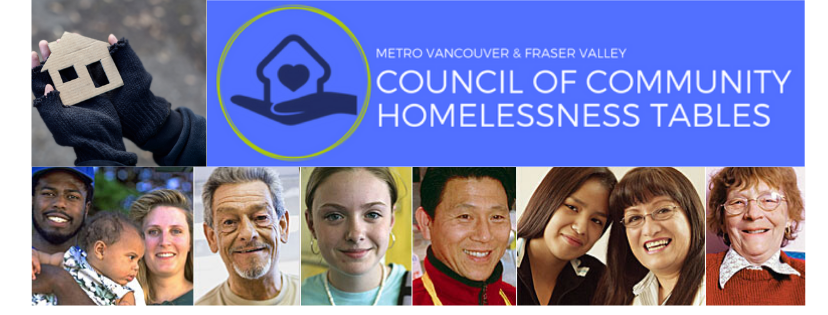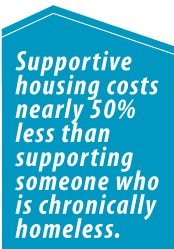Start With Housing
Providing people with shelter is a good start, but now it’s time to provide more permanent housing with supports.
Beyond providing people with shelter is the concept of providing people with a home – a safe and permanent place to reside. Its common sense, but challenging in a region where the average rent for a one bedroom apartment amounts to over half of what a person earns working full time at minimum wage. (Housing is considered affordable when it costs 30% or less of a person’s income).
The Greater Vancouver Regional Steering Committee on Homelessness (RSCH) is mandated with maintaining and implementing a regional homelessness plan to end homelessness in Metro Vancouver. The Committee, which includes the three levels of government, health authorities, funders, community networks, homeless facility operators and service delivery organizations, is beginning work on a new 10-year regional homelessness plan for Greater Vancouver. The RSCH supports solutions that focus on providing the homeless and at-risk with a stable home – as the first and most important step in helping them move out of homelessness. Once the basic need of a secure place to live is met, attention can turn to supporting people through challenges like employment training, establishing freedom from abuse, and becoming physically well.
A Proven Approach
Providing housing with supports is about permanent and long-lasting solutions to homelessness. And it’s an approach that’s proven successful.
Several Canadian cities, including Vancouver, have already seen a reduction in homelessness populations using a housing first philosophy (i). Research notes that hospital admissions, police interventions, and health care costs dropped dramatically for people who are provided with supportive housing (ii). A 2008 Streetohome Foundation report shows that providing an individual with supportive housing costs nearly 50% less than providing services to someone who is chronically homeless (iii).
Beyond being fiscally cost-effective, supportive housing also addresses the human cost of homelessness. When a person’s basic need for a secure and stable home is met, they are empowered to address life challenges that contribute to homelessness such as the need for employable skills, addressing physical or mental health issues, or escaping violence.
This approach has been proven so successful that between 75 and 86 per cent of the homeless who are ‘hardest to house’ (suffering from acute mental illness) who have housing with supports retain that housing long-term and begin their journey out of the cycle of homelessness (iv).
Requesting your Support
Your support continues to play a crucial role in solving homelessness.
Public support for the solutions to homelessness is critical. You will continue hear about the work of the RSCH as the Committee and its partners begin to develop a new 10-year Regional Homelessness Plan. To offer your support in your community, you can connect with Community Homelessness Task Forces which operate locally throughout Metro Vancouver to end homelessness at the local level.
Take Action Now
Contact your Community Homelessness Task Force to become involved in the services in your region.
[i] Homeless Hub. (2013). The State of Homelessness in Canada 2013. Retrieved from: http://www.homelesshub.ca/Library/View.aspx?id=55941
[ii] Mental Health Commission of Canada. (2012). At Home/Chez Soi Project Early Finding Report.
[iii] As cited in Streetohome Foundation. (2011). Community Action on Homelessness: Streetohome’s 10-Year Plan for Vancouver. Streetohome Foundation.
[iv] Mental Health Commission of Canada. (2012). At Home/Chez Soi Project Early Finding Report.


